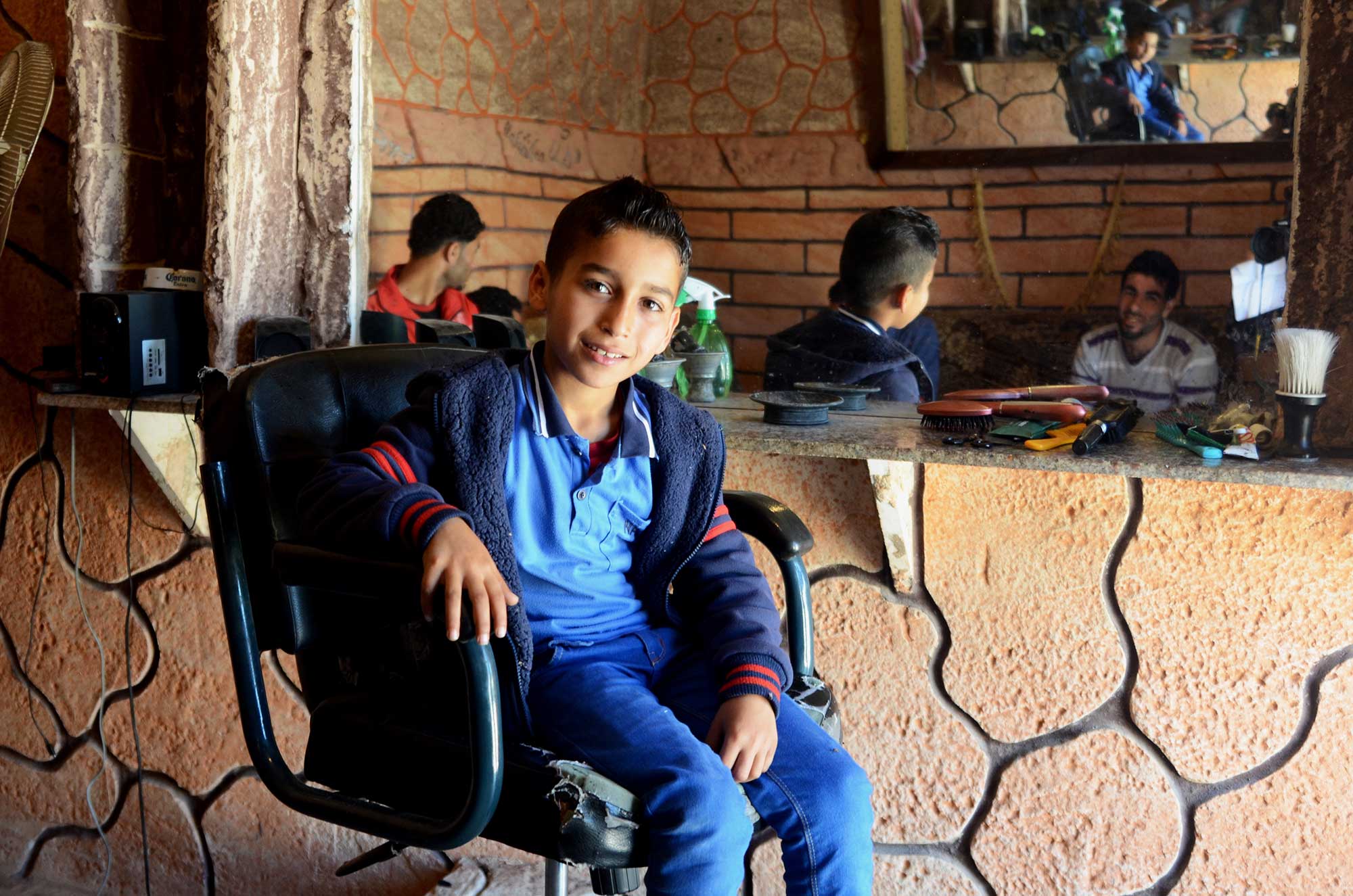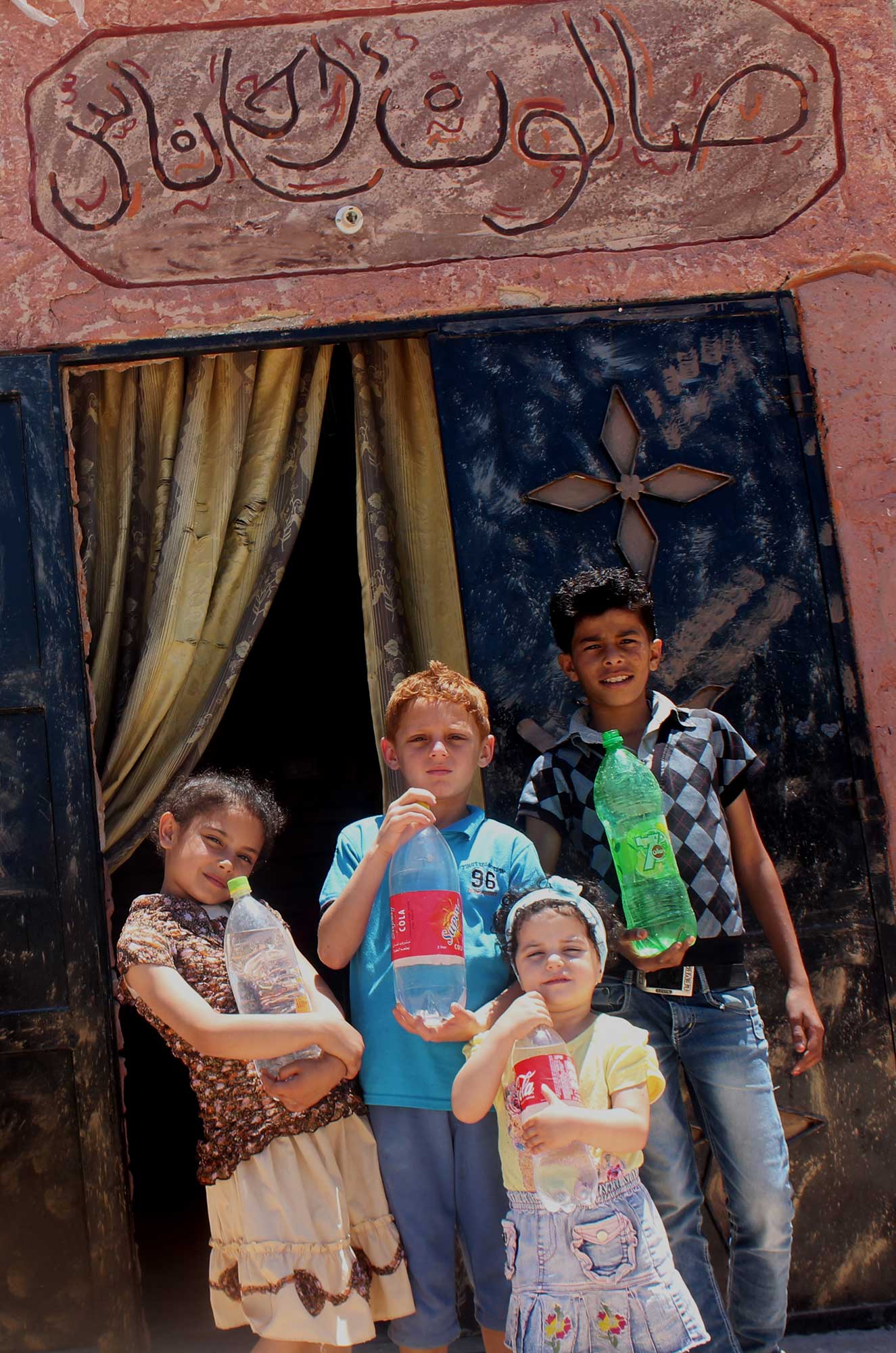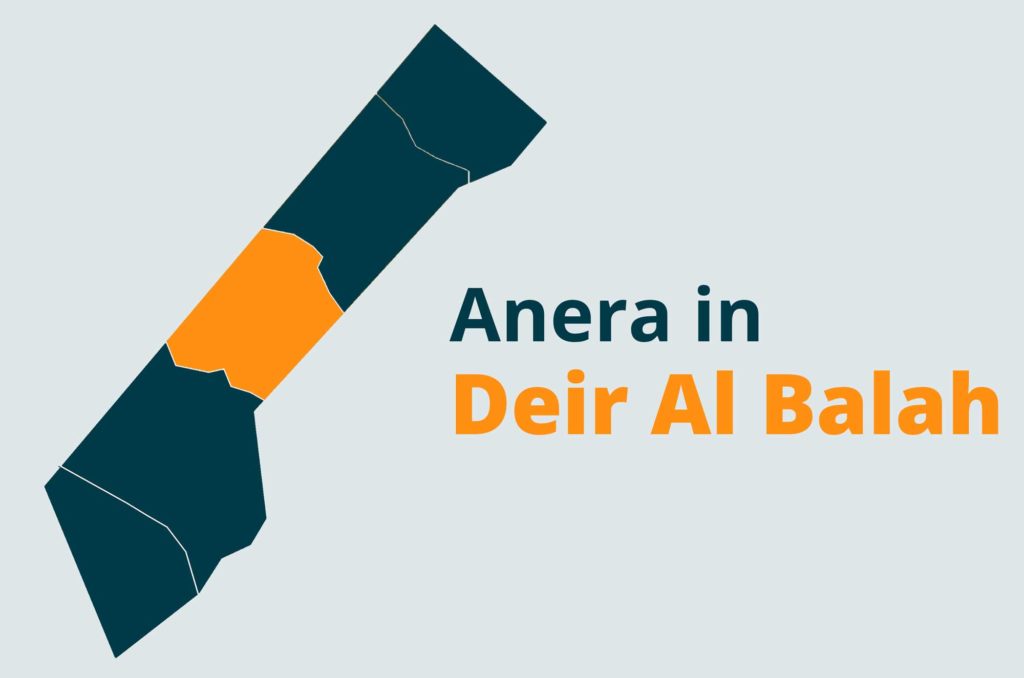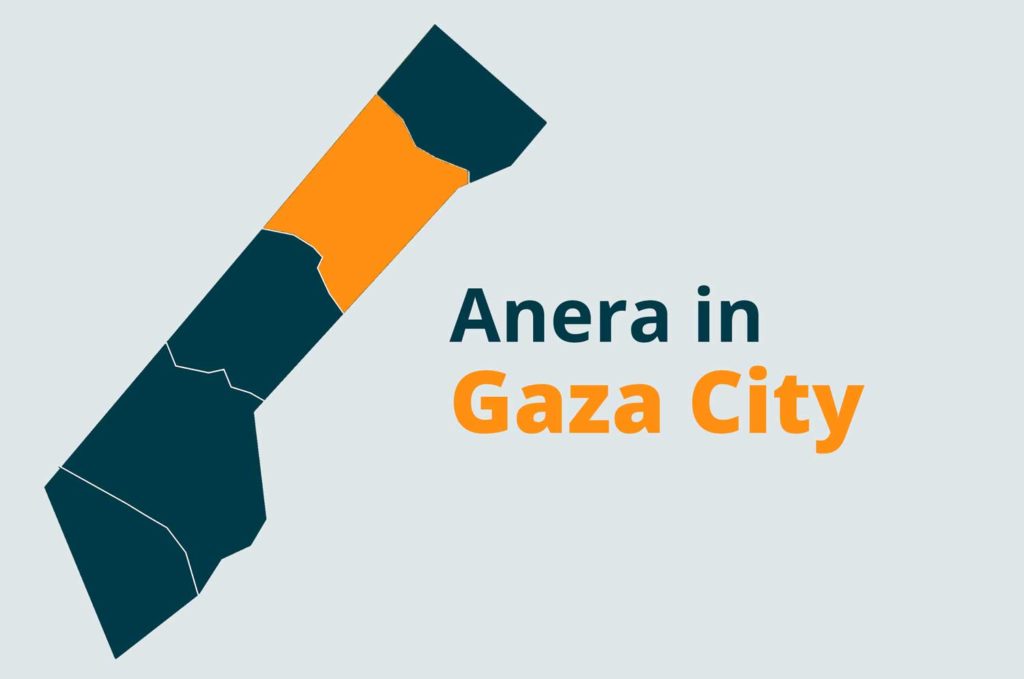May, 2015
A visit to the neighborhood barbershop in El Sawarha easily turns into a community gathering.
This was something that was missing after the 2014 Gaza war, when water connections were damaged and the shop remained shuttered. Today, thanks to a new connection to a steady water supply, the barber shop is open again and doing a brisk business.
Inside the shop, a group of men and children were sitting and admiring the finishing touches on other clients. “I used to come here once a week to get my hair cut and frankly just to see people from around the neighborhood,” said Kahled El-Masri as he admired his new haircut.


I used to come here once a week to get my hair cut and frankly just to see people from around the neighborhood.
Residents of El Sawarha village have been struggling with poverty, unemployment, poor health and bad water conditions for many years. The 2014 Gaza war left the village with a lot of damage and deep scars.
With funding from Islamic Relief, Anera is working on 18 water and sanitation projects to reconnect impoverished communities across Gaza, including El Sawarha, to reliable water supplies.


A Bit of Beauty Amid Tragedy
Poor hygiene from lack of a reliable supply of clean water has had negative repercussions on the health of village residents, especially children who are at high risk of infections, diarrhea, parasites and dehydration. Recent reports have shown that 26% of Gaza diseases are water related and 90% of the underground water is contaminated.
With a pair of scissors in one hand and a thick comb in the other, Abdel Kareem acknowledges he doesn’t make a lot of money, charging only 3NIS per client ($.75) but he says the barbershop is a lot of fun and a center of village life: “I like when people are waiting for their haircut they share stories and news of the village and even plan some social events too.”


“With the new water connection, my job is much easier and lets me keep the only barbershop in this poor village operational,” Kareem says. Smiling, he continues, “It adds a bit of beauty to the village too.”
This is evidenced by the name he gave his barbershop, “Ahla Nas,” which means “beautiful people.”
“People bear heavy burdens here and yet they can find something nice in the barbershop,” said owner Abdel Kareem El Masri. “I do five or six shaves and cuts a day. I get more customers on the weekend.”
While spraying water and trimming the hair of one of his customers, his face lights up and he talks about the new water connections to his house and to the shop.
“This part of the village lacked clean water for many years,” he said. Like many residents of the village, he and his family would stay up late at night waiting impatiently for water to come out of the tap. “Sometimes it was only a few drops. It was even harder to fill the tanks at home and have enough water in the shop to keep it open,” he said. So he spent most of his earnings on buying water to fill tanks at home and at the store.
Abdel Kareem says the new water connections have improved the lives of his family and his village. “I need water to wash my customers’ hair and clean the equipment and launder the towels,” he said. “Without water, the minimum standards are lost.”


